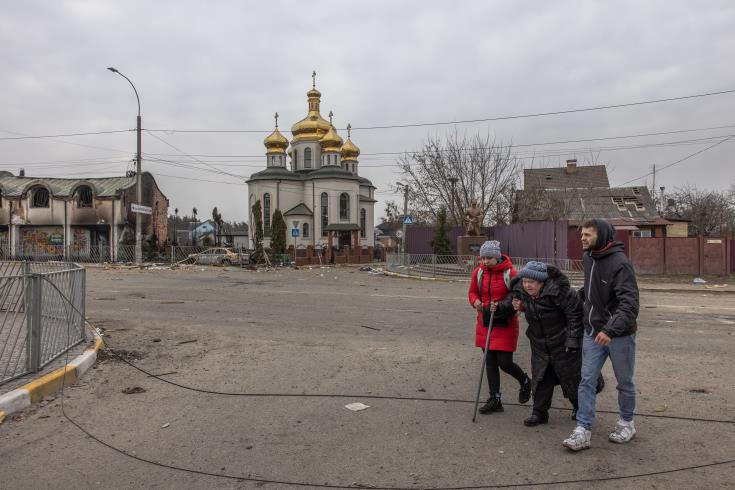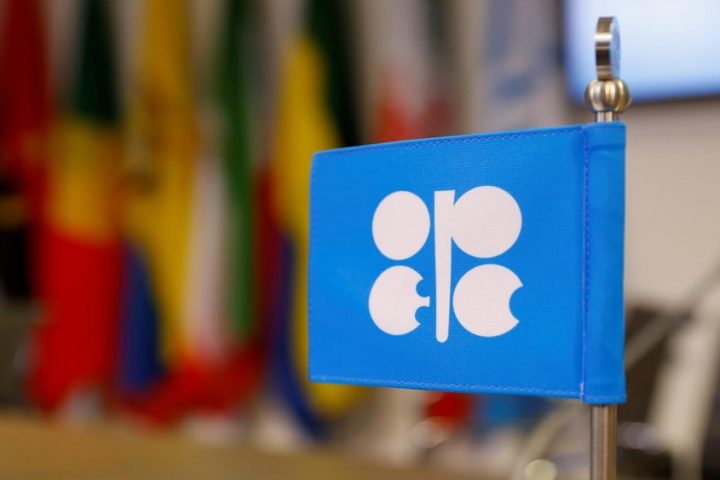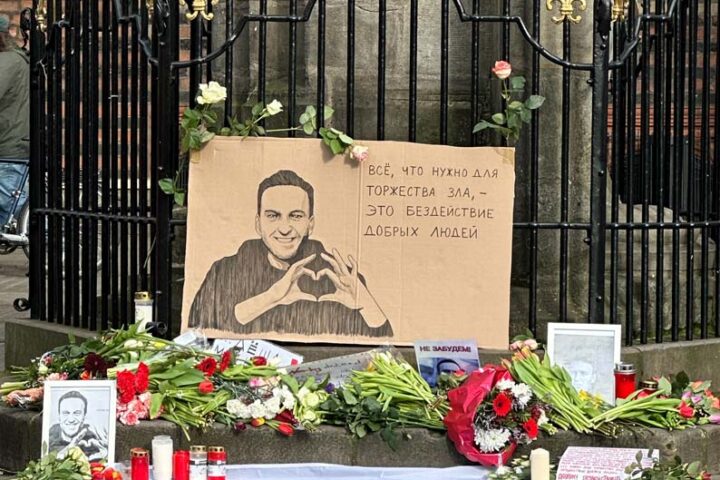Desperate civilians began fleeing a besieged Ukrainian city through a humanitarian corridor opened by Russia on Tuesday, as the number of refugees to flee the country hit more than two million.
The war has sparked Europe’s largest refugee crisis since World War II, with more than two million people having crossed Ukraine’s borders, according to the United Nations.
The West has hit back with sanctions on Russia that have reverberated around the global economy, but they have failed to dissuade President Vladimir Putin from pushing on with his assault.
Russia warned it could cut Europe’s gas supplies in revenge for sanctions and said any ban by Western allies on Russian oil imports would have “catastrophic consequences”.
The Ukrainian military said Tuesday, nearly two weeks into the war, that Russia was ramping up its troops and equipment around the main conflict zones, as it sought to encircle the capital Kyiv.
Ukrainian President Volodymyr Zelensky denounced what he called unkept promises by the West to protect his country from Russian attacks.
“It’s been 13 days we’ve been hearing promises, 13 days we’ve been told we’ll be helped in the air, that there will be planes,” Zelensky said on a video broadcast on Telegram.
“But the responsibility for that rests also on those who were not capable to take a decision in the West for 13 days,” he added. “On those who have not secured the Ukrainian skies from the Russian assassins.”
‘I’m not afraid’
Evacuations had begun in Sumy, near the Russian border and 350 kilometres (218 miles) east of Kyiv, the interim chief of the Poltava region, Dmitry Lunin, said early Tuesday.
Dozens of buses had already left in the direction of Lokhvytsia, 150 kilometres to the southwest, Lunin said. Officials said the corridor is designed to evacuate civilians, including Chinese, Indians and other foreigners.
The evacuation came after 21 people, including two children, were killed in airstrikes in Sumy on Monday, a local official said.
“Enemy planes insidiously attacked apartment buildings,” Ukrainian rescue services said on Telegram.
Russia’s initial offer of humanitarian corridors led nowhere, but it floated the idea again, with the defence ministry saying it would open them from 0700 GMT Tuesday, subject to Ukraine’s approval.
It listed routes from Kyiv as well as Sumy, the besieged port city of Mariupol, and Ukraine’s devastated second city of Kharkiv.
But Zelensky accused Russia of reneging on previous escape route agreements and trying to stop people such as by planting explosives on roads and destroying buses.
“I do not know many Ukrainians who want to go to Russia,” Zelensky said in a video posted on Telegram late Monday.
Zelensky, hailed as a hero by many Western governments, said he was “staying in Kyiv… I’m not afraid” and that he would continue to negotiate with Russia to reach a peace deal.
Three previous rounds of talks have made little progress on even achieving a ceasefire.
The Ukrainian leader was due to address the British parliament later Tuesday.
‘Hand-to-hand combat’
Despite a slow start and a large Russian column being stalled outside Kyiv, Moscow’s forces have slowly advanced, particularly in the east and south.
Tens of thousands of people remain trapped without water or electricity in brutal conditions in the besieged Azov Sea port of Mariupol, humanitarian agencies say.
Terrified civilians have also been packing trains out of the Black Sea port of Odessa amid fears of a Russian assault.
AFP journalists witnessed thousands of civilians on Monday fleeing fighting via an unofficial escape route from Irpin, a suburb west of Kyiv, towards the capital.
One Ukrainian paratrooper told of “hand-to-hand” combat in Irpin, saying “we are trying to push (Russian soldiers) out, but I don’t know if we’ll be fully able to do it”.
At least 406 civilians have died since the start of Russia’s assault on its ex-Soviet neighbour, according to the UN, although it believes the real figures to be “considerably higher”.
Ukrainian forces said Tuesday they had repulsed a Russian attack on the city of Izium in the Kharkiv region, and outgunned troops have been trying to hold back a Russian push up from the east and south in an attempt to encircle Kyiv.
A Russian military spokesman said troops had disabled a military airfield at Jitomir, while separatist forces in the Luhansk and Donetsk regions were making gains.
Faced with international condemnation, Putin has equated sanctions with a declaration of war and put nuclear forces on alert.
Putin has pledged the “denazification” of Ukraine and demands its “neutralisation” and demilitarisation.
Putin said on Monday, however, that he will not send conscripts or reservists to fight in the conflict.
‘Catastrophic’ consequences
Despite harsh punishments for those voicing dissent, protests in Russia against the Ukraine invasion have continued, with more than 10,000 people arrested since it began.
Russian Deputy Prime Minister Alexander Novak warned Monday that a ban on Russian oil imports would have “catastrophic” consequences for prices that have already hit 14-year highs.
He added that in retaliation for the halt on the Nord Stream 2 pipeline project, Russia could stop supplies via the Nord Stream 1 pipeline.
Western allies fear the effect of an oil ban on their own economies, with US President Joe Biden’s spokeswoman saying on Monday after talks with European leaders that no decision had been taken.
But they have responded to the invasion with tough sanctions and poured military equipment into Ukraine, while steering clear of the no-fly zone demanded by Zelensky, fearing a wider war with Russia.
An international legion of volunteers has also descended on Ukraine to fight the Russians.
The Pentagon said Monday that Moscow was on a recruiting mission for its own foreign fighters — Syrians who fought for President Bashar al-Assad.
“We do believe that the accounts of them — the Russians — seeking Syrian fighters to augment their forces in Ukraine, we believe there’s truth to that,” Pentagon spokesman John Kirby told reporters.
The World Bank on Monday approved an additional $489-million package in support for Ukraine, to be made available immediately and dubbed “Financing of Recovery from Economic Emergency in Ukraine,” or “FREE Ukraine.”
By Dmitry ZAKS and Dave CLARK










